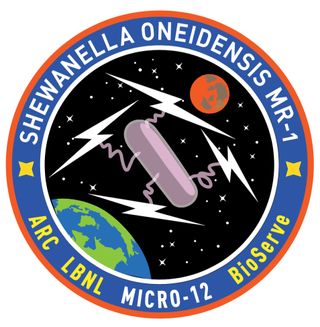How 'Electric Microbes' Could Generate Power (And More) for Space Missions (Video)
One of the experiments astronauts are tending to on the International Space Station could electrify space exploration.
The experiment centers on a batch of microbes called Shewanella oneidensis MR-1, which arrived at the station in early July. Here on Earth, Shewanella has an unusual skill: It can produce electricity. The experiment is the first step to determining whether the microbes can do so in space as well — and whether humans can harness that ability to make space exploration easier.
The bacterium belongs to a group called exoelectrogens, which can create electricity all by themselves, as NASA explains in a recent video. They do this by passing electrons from inside their bodies out into the world around them on tiny, wire-like appendages.

Theoretically, in space, bacteria like Shewanella could not only generate electricity but also help astronauts purify water — and both of those uses could reduce the amount of luggage that explorers must carry with them.
But before scientists pin all their hopes on these miniature power plants, they need to figure out whether Shewanella can survive and thrive in space — hence, the experiment at the space station. The scientists are particularly worried because Shewanella typically work by forming biofilms, which are thin sheets of individuals in close contact with each other, but that process might not work the same way in space.
Once the bacteria come back down to Earth, the scientists behind the experiment will study them to see whether they suffered from living in microgravity. If they didn't, the result could be a shocking advance in managing space resources.
Email Meghan Bartels at mbartels@space.com or follow her @meghanbartels. Follow us @Spacedotcom, Facebook and Google+. Original article on Space.com.
Get the Space.com Newsletter
Breaking space news, the latest updates on rocket launches, skywatching events and more!
Join our Space Forums to keep talking space on the latest missions, night sky and more! And if you have a news tip, correction or comment, let us know at: community@space.com.

Meghan is a senior writer at Space.com and has more than five years' experience as a science journalist based in New York City. She joined Space.com in July 2018, with previous writing published in outlets including Newsweek and Audubon. Meghan earned an MA in science journalism from New York University and a BA in classics from Georgetown University, and in her free time she enjoys reading and visiting museums. Follow her on Twitter at @meghanbartels.
